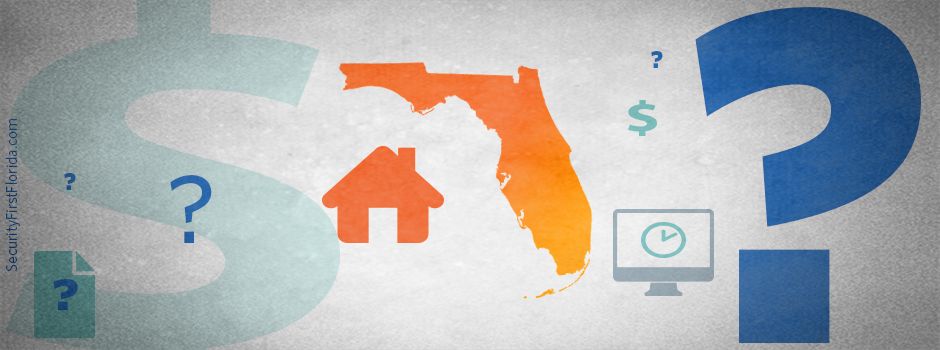14 factors to consider when buying Florida home insurance in 2014
January 14, 2014

When it comes to buying a Florida homeowner insurance policy, it’s wise to listen to the sage advice Smokey Robinson’s mother gave him years ago – shop around! But it can be hard to shop when you don’t know what to look for – and window shopping through the home insurance marketplace isn’t most folks’ idea of fun. So we’ve compiled a list of 14 suggestions to help you shop with savvy for your home insurance coverage this year:
1. Get a CLUE when buying a home: Request a copy of the Comprehensive Loss Underwriting Exchange (CLUE) report for the home you are thinking of buying. The report provides a seven-year history of losses associated with the property, including the date of loss, loss type, and amount paid along with general information such as policy number, claim number and insurance company name. This Homebuyer’s Guide contains helpful information to keep in mind during the home buying process. (Tweet This)
2. The price isn’t always right: A low premium is no bargain if an insurer can’t pay its claims, especially in the event of a major catastrophic event. Take time to conduct the following research:
- Company ratings: All Florida homeowners insurance companies are rated by Demotech, Inc. except for state-run Citizens Property Insurance Corporation. Demotech uses a series of quantitative ratios and considerations to assess solvency and determine an insurer’s Financial Stability Rating® (FSR). Companies with FSRs of A or better are considered to be stable.
- Financial Stability/Reinsurance: Does your insurance company have the financial resources to pay its claims – and continue to conduct business as usual – in the event of a major catastrophe or during a year with multiple hurricanes (like our state experienced in 2004)? Insurance companies buy reinsurance (insurance for insurance companies), but there are no minimum purchasing requirements so some insurance companies are more financially stable than others. Because not all companies provide financial stability details about their on their website, you might have to ask a few questions to find out about a company’s reinsurance program.
3. Make sure your coverage keeps up with the changing times:
- Ordinance or Law: This pays the increased costs to meet current building codes when rebuilding or repairing your home. For example, a home built in 1999 would have fallen under much less stringent building codes governing your electrical, plumbing or roof systems than a house built today. Coverage A (coverage for the structure of your home) will only compensate you for the cost of repairing your home to its original (1999) state – but you’re required to rebuild to meet the current codes. Without adequate ordinance or law coverage, you could be left with significant out-of-pocket expenses to meet the requirements of Florida Building Code. To alleviate some of the cost to Florida homeowners, Security First Insurance Company includes Ordinance or Law (O&L) coverage in its policies. Some homeowners insurance companies charge extra for this coverage, so make sure you understand your policy coverage and the price.
- Replacement Cost Coverage on Contents: This covers the cost to replace personal property damaged or destroyed by a covered loss without deducting for depreciation. Most companies consider this very important coverage to be optional. The standard coverage most companies offer for property is Actual Cash Value – the actual value an item is worth today (new cost minus depreciation). ACV is not the amount you paid for your belongings or the amount it would cost to replace them. Actual cash value is more like a used price for your stuff whereas the replacement value is a newer price. Because this coverage is so important, Security First Insurance Company includes replacement cost in its policies.
4. What’s covered? Homeowners insurance policies don’t cover every risk faced by your home. For instance, flood is excluded under a standard homeowners insurance policy, although you can contact your agent for flood insurance through the National Flood Insurance Program (NFIP). Other typical home insurance exclusions include damage from power failures, sewage drain backups, mold, insects, war, neglect, nuclear hazards, intentional damage, and losses due to poor workmanship or defective materials. Additionally, standard policies usually include limits to the amount of coverage available for collectibles (antiques, art, stamps, books, etc.), jewelry, guns and other high-value possessions – although most insurance companies offer riders, endorsements or floaters that provide increased coverage for those items.
Take a moment to sign up for our blog before you continue to part two of 14 Factors for Buying Florida Home Insurance in 2014.
Subscribe Today
Enter your name and email address to have our posts emailed directly to your inbox.







